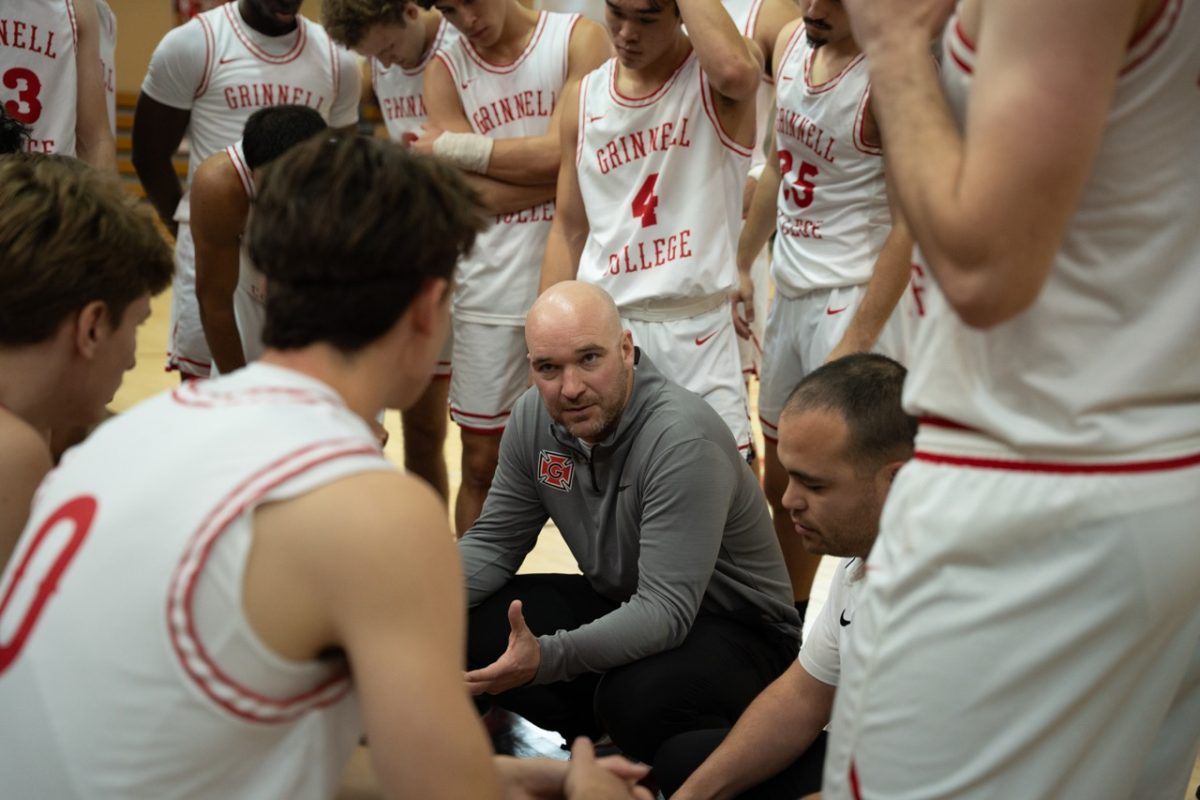By Hayes Gardner
gardnerh@grinnell.edu
Adapting to a new environment away from home and handling more rigorous classes than high school is a challenge for any college student. For first-year athletes, the process also involves becoming members of a new team. However, many first-year athletes find the support teams provide to be beneficial to the college experience, especially for fall athletes who become acclimated to their new life prior to the start of classes.
“[The women’s soccer team] came to campus two weeks early for pre-season and we spent every day together … I felt like I had an instant group of friends,” said midfielder Maddie Gray ’16, from Chico, California.
“We had been here for about two and a half weeks before NSO … I felt like I wasn’t new anymore,” said football tight end Dalton Davies ’16, of Beloit, Wisconsin.
Older teammates also played a role in helping first years adjust to Grinnell.
“Everyone was supportive and nice, introducing themselves [and] eras[ing] the awkwardness,” said men’s soccer outside defender Zach Liebman ’16, from Evanston, Illinois. “The soccer team was very welcoming.”
“The captains and upperclassmen planned a lot of group bonding activities,” said women’s cross country runner Toni Androski ’16, from Hutchinson, Kansas. “They all seemed really excited for [the first years] to be there.”
“In the first week, the captains took all the first years out to Dari Barn for ice cream and we had a lot of team bonding activities,” Gray said.
Davies noted the eagerness of the football players to introduce the first years to what Grinnell had to offer, not only as athletes, but as students.
“They were all real helpful, right away … they all were real willing to help, real willing to give advice that they saw as appropriate and useful. A lot of them emphasized using the resources at Grinnell [like] the Writing Lab [and] Math Lab,” Davies said. “Before you really even knew them, they were giving you good, helpful advice.”
Coaches also aided in the acclimation of students to their new teams and new homes.
“[Head coach Brian Jaworski] would compliment us individually and get our name out there. That was nice,” Liebman said.
“We always have a sleepover at [head coach Evelyn Freeman’s] house one of the first weekend’s that we’re here,” Androski said.
The football coaches organized activities for the entire team to help the players get to know each other, which included workshops, guest speakers and interactive activities before school started. The team also went fishing at Equipment Room Supervisor Roger Bauman’s house.
“I thought Coach [Jeff Pedersen ’02] did a great job of really making the first years feel welcome,” Davies said.
Coming from high school, first-year athletes also have to adjust to a higher level of competition.
“I remember the first day of practice during pre-season was a lot faster than the level of play that I came from, but I felt like I adjusted to it,” Gray said.
“It’s been really great because there’s such a wide range of competitiveness, both on our team and other teams,” Androski said on adjusting to college athletics.
Balancing academics and athletics, as well as living away from home, is another obstacle first-year athletes have to manage.
“The hardest part is juggling academics with athletics. Mainly when you’re on the road and you’re just tired and you’re with your teammates, who are your best friends, sometimes you don’t want to think about doing your homework when you should,” Gray said.
Liebman felt that athletics helped him manage his classwork.
“Soccer gave me the incentive to do work ahead of time and be prepared always [for class],” he said.
Androski noted that it was helpful to do work with teammates as well as play. After practice and dinner, the team often goes to a study space as a group.
“It helps that the team goes and studies together… It helps to have someone to go with,” she said.
“In the back half of the season, I got that equation between school and work and fun figured out,” Gray said.
Adjusting to a new city, a new school and a new team can be difficult, but with the help of coaches and upperclassmen, first years found the adjustment to be manageable, thanks to the support group provided by the team.
“It felt kind of like a family,” Gray said.
Davies also noted the intimacy of the team.
“We had a lot of team bonding the first weeks of camp … it really felt like a family,” he said.



















































